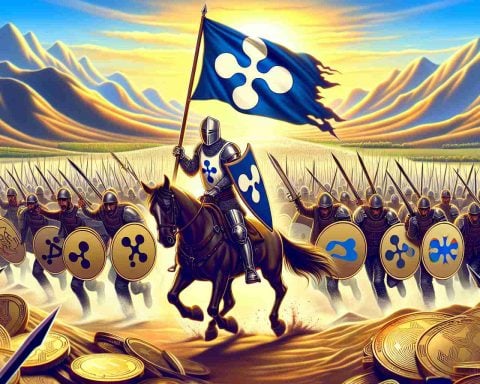The gaming world is buzzing with the recent announcement surrounding the return of Flappy Bird, the once-iconic mobile game that took the world by storm. Initially developed by Dong Nguyen, the game was famously removed in 2014 when its creator chose to delete it during its peak popularity, much to the surprise of fans and industry insiders alike.
Now, a new version is set to emerge, but with a significant twist: it is deeply intertwined with cryptocurrency. Nguyen, after several years of silence, has taken to social media to clarify that he is not associated with this resurrected game. He made it clear that he did not sell his rights, suggesting that a new entity has taken advantage of the expired trademark he never renewed.
The upcoming Flappy Bird adaptation is being marketed as a Web 3.0 experience on the Solana blockchain, where players would not only enjoy gaming but also have the opportunity to earn revenue through play-to-earn mechanics. This initiative has drawn criticism from the gaming community, given its heavy reliance on NFTs and crypto elements, further straying from the simple charm that made the original a hit.
As this contentious venture unfolds, the gaming community remains skeptical, expressing concerns over the integrity of the beloved franchise. Despite the excitement surrounding the revival, Nguyen’s distancing from the project casts a shadow over its legitimacy as a true successor to the beloved classic.
The Resurgence of Flappy Bird: A Controversial Crypto Revival
Flappy Bird, the endlessly challenging game that captivated millions in 2013 and 2014, is making headlines again, but not for the reasons fans might hope. After years of dormancy and some controversy surrounding its abrupt removal, a revitalized version of the game is poised to launch in the realm of cryptocurrency. This revival, however, is prompting substantial debate about its authenticity and the future of casual gaming.
Key Questions Addressed
1. What are the main features of the new Flappy Bird?
The revived version of Flappy Bird is designed as a decentralized game running on the Solana blockchain. It introduces a play-to-earn model that allows players to earn cryptocurrency rewards as they navigate the infamous pipes. Unlike the original, where the only goal was to achieve a high score, this new game incorporates NFT collectibles, giving players the ability to trade and sell in-game assets.
2. Why is Dong Nguyen distancing himself from the new Flappy Bird?
Dong Nguyen has publicly stated that he has no affiliation with the new project, emphasizing that he did not sell any rights to the game. His lack of involvement raises questions about the game’s authenticity and whether it truly represents the original vision or soul of Flappy Bird.
3. What challenges are associated with this revival?
One of the primary challenges is the potential alienation of the original fanbase. Many players seek the nostalgic and straightforward gaming experience that Flappy Bird offered, without the intrusive elements of cryptocurrency and NFTs. Additionally, the environmental concerns associated with blockchain technology may deter eco-conscious gamers from embracing the revival.
Advantages and Disadvantages of the Crypto Revival
Advantages:
– New Revenue Stream: Players have the opportunity to earn cryptocurrency, potentially fostering a new economic model within gaming.
– Engagement through NFTs: The integration of NFTs can enhance player engagement and investment in the game, creating a sense of ownership that traditional gaming models lack.
– Technological Innovation: By utilizing blockchain technology, the game stands at the forefront of gaming innovation, appealing to tech-savvy enthusiasts.
Disadvantages:
– Loss of Simplicity: The addition of gaming complexities and economics could detract from the simplicity that made Flappy Bird appealing.
– Skepticism and Distrust: The community concerns regarding the integrity and intentions behind the new game could hinder its acceptance and popularity.
– Market Volatility: The crypto market is notoriously volatile, and the value of in-game earnings may fluctuate greatly, discouraging players relying on stable income from gaming.
Conclusion
As Flappy Bird attempts to navigate the intertwined worlds of gaming and cryptocurrency, the implications of this controversial revival are still unfolding. While it presents a significant opportunity for innovation and engagement, it also risks alienating fans of the original game. The future of this classic will depend heavily on the reception of these novel features and whether the community can embrace a potentially altered vision of a beloved favorite.
For those interested in more about the gaming industry and crypto integrations, visit IGN or Polygon.
















